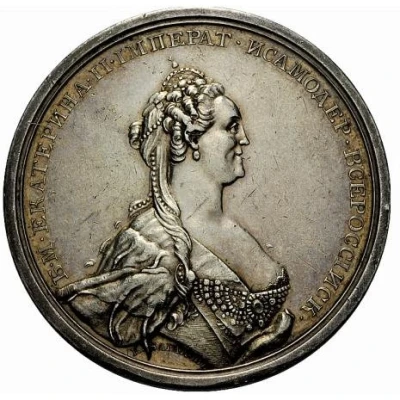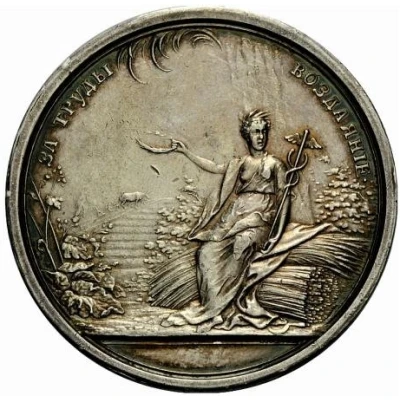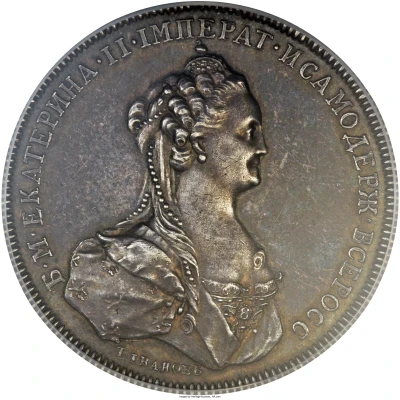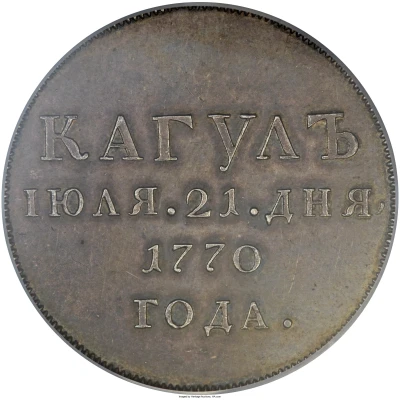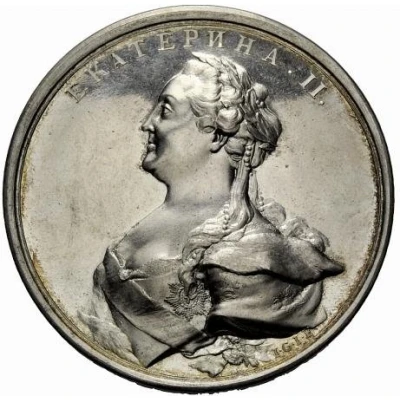
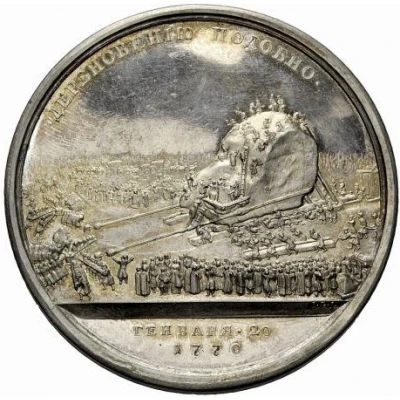

© Sincona AG
Medal - Catherine II Transportation of the granite monolith for the monument to Peter I
1770 year| Silver | 100.28 g | - |
| Location | Russian Empire |
|---|---|
| Empress | Catherine I (1724-1727) |
| Type | Medals › Commemorative medals |
| Year | 1770 |
| Composition | Silver |
| Weight | 100.28 g |
| Shape | Round |
| Technique | Milled |
| Demonetized | Yes |
| Updated | 2024-11-14 |
| Numista | N#126725 |
|---|---|
| Rarity index | 100% |
Reverse
View of the transport of the granite block with the Tsarina, workers and spectators.
Engraver: J. C. G. Jaeger
Comment
The reverse is based on an engraving by I. F. Schley of the drawing by Y. M. Felten.The block of granite used as a pedestal for the monument was called „the thunder stone" and considered to be the largest stone ever moved by man. Its weight was calculated at 1500 tons. It was moved 6 km overland to the Gulf of Finland and then by barge to St. Petersburg. The project was considered a historic engineering feat. All work was done by men, no animals or machines were used in the transport of the stone. The engineer in charge was a Greek serving as a lieutenant-colonel in the Russian Army, Marinos Carburis. He was the first Greek to hold a diploma in engineering. The equestrian bronze statue by Etienne Falconet and the pedestal were commissioned by Catherine II. Interestingly, the face of Peter I was the work of an 18 year old female apprentice, Marie-Anne Collot. The Soviet Union issued a 5 rubel commemorative coin in 1988.
